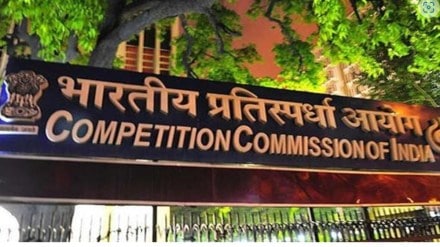By Dhanendra Kumar
The Parliamentary Standing Committee on Finance recently submitted a report titled “Anti-competitive Practices by Big Tech companies”, recommending a slew of ex ante regulations that are proposed to be made applicable to “systemically important digital intermediaries” operating in the digital markets in India. This report came close on the heels of its earlier recommendation on the Competition Amendment Bill 2022 that is pending before Parliament, where, amongst other things, the committee had recommended introduction of an effects-based test for “abuse of dominant position” under the Competition Act 2002.
Also Read: CCI role in policy domain under watch
Between April 2022 and August 2022, the committee gathered oral evidence of the Competition Commission of India, the ministry of corporate affairs, the ministry of electronics and information technology, Confederation of All India Traders, Digital Media and Newspapers Association, Alliance of Digital India Foundation and Big Tech companies like Apple, Google, Meta and Amazon. The committee’s report lists 10 areas of concern, such as self-preferencing, exclusive tie-ups, bundling and tying, search and ranking, deep discounting, etc. The committee says that the existing competition law and regulations are not sufficient to check the rapid emergence of centres of dominance in the highly dynamic digital economy. The committee has thus recommended that there is a need to evolve another layer of law, in parallel to the legacy competition law, to check their growth ex ante, on the lines of the Digital Markets Act (DMA) of the European Union (EU).
In an interview, chairman of the committee Jayant Sinha said that the proposed law would operate by identifying the ‘systematically important digital intermediaries’ that operate as ‘gatekeepers’. Like the DMA in the EU states, these enterprises could be engaged in providing certain core services like search engine provision, messaging services, video sharing, cloud computing, operating systems, e-commerce services and social networking. These ‘gatekeepers’ can be identified based on specified parameters like number of business users, market size, consumer traffic on their platforms, volume of transactions, etc.
Such identified ‘systematically important intermediaries’ or ‘gatekeeper’ enterprises can then be subjected to greater discipline, and can be mandated to play by certain rules and file compliance reports periodically, ensuring that these ex ante rules for anti-trust compliance are strictly adhered to. Practices such as self-preferencing by e-commerce players—favouring their private labels over others, using personal data of consumers to gain unfair advantage over others, preventing fair play and steering customers to those entities preferred by them, denying transparency on advertising revenues, etc—can be then checked. There would be stiff penalties for violations of these rules.
Also Read: Recalibrating the Competition Act: An Explainer
While many of these recommendations may attract the interest of lawmakers, the existing architecture of the competition law in India is adequate to achieve many of these objectives. To illustrate, the CCI recently fined Google in two separate cases—Rs 936 crore for abuse of dominance via Play Store policies, and Rs 1,337 crore for abuse of dominance in multiple markets in the Android ecosystem. Until now, the NCLAT has refused to grant stay and asked them to first deposit 10% of the penalty amount. The Supreme Court has also refused relief so far. The commission also ordered a director-general investigation against Apple, following information on alleged abuses by the company, filed by an NGO. Separately, the Supreme Court has dismissed the appeals by Amazon and Flipkart for staying probes against them for alleged anti-competitive practices. The Delhi High Court rejected Meta’s appeal against the investigation in the WhatsApp case that was taken up suo motu by CCI in March 2021. A case relating to sharing of revenues in digital media is already pending before the CCI.
There are undoubtedly a few gaps in the existing competition law, as pointed out by the Competition Law Review Committee (CLRC). Based on CLRC’s report, the Competition Amendment Bill has been drafted prepared, on which the parliamentary panel has already submitted its report. It is hoped that after due deliberations, and with final amendments, the architecture of the existing competition law will become robust enough to meet the needs of regulating digital markets, and particularly, Big Tech. Besides, there are several other legislations on the anvil, like the Telecom Bill, the Digital Personal Data Protection Bill, and the Digital India Bill—all expected to be enacted in 2023, making the digital regulatory legislation framework quite comprehensive. There is no need to have a mirror image of the EU’s DMA. If and when this is considered necessary, it can be formulated based on India’s needs and the experience of the EU. Until then, there could be fencing of dominant firms by tighter oversight. The CCI is already contemplating the constitution of a Digital Market Unit (DMU) inside the Commission, which will be manned by experts skilled in relevant domains.
There is indeed a need for the digital markets in India to realise and appreciate the needs and expectations of the Indian economy and consumers. Digital-market firms in India must voluntarily produce periodic reports on what they have done for the country and competition.
(The author is former chairperson, Competition Commission of India, and founding chairperson, Competition Advisory Services)
